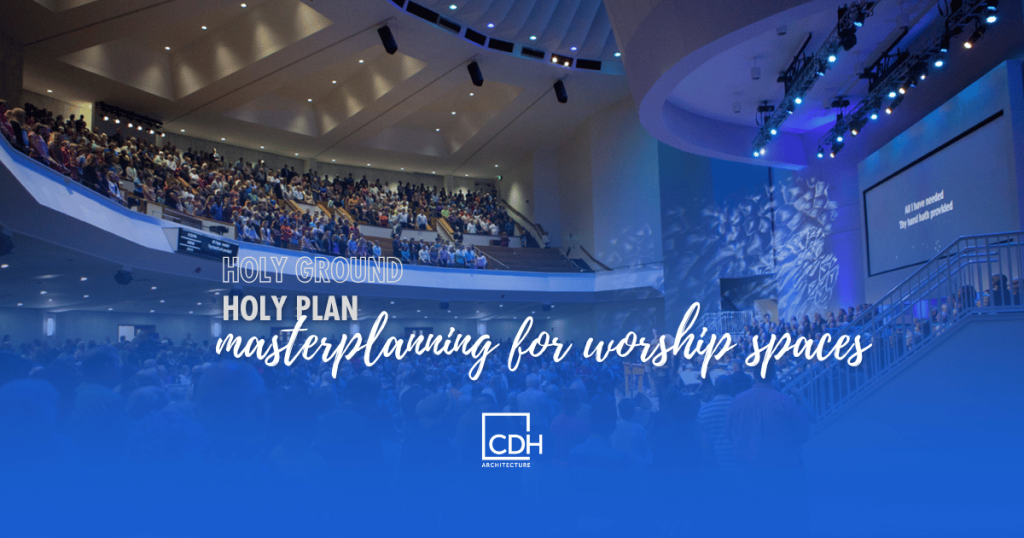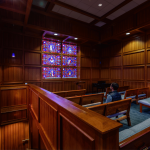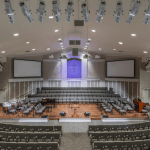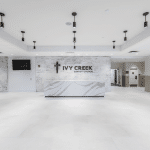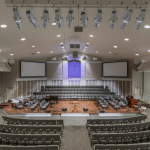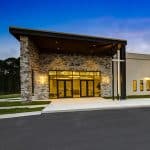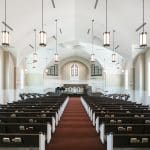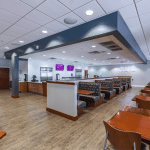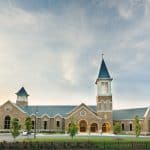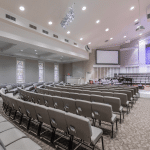Introduction
Designing a masterplan for a new worship facility or renovating an existing one is a significant endeavor, requiring careful planning and the right team to ensure success. One of the most crucial decisions is selecting an architectural design team. The right architects will help you create a space that meets your congregation’s needs while reflecting your church’s unique identity. They can also guide you through the intricate process of building or renovating, from zoning and permits to construction and financing.
In this context, CDH Partners stands out as a dedicated architectural firm with extensive experience in designing worship spaces. Their unique Worship Studio experience focuses on understanding the specific needs of faith-based communities, ensuring that each masterplan and project aligns with the ministry’s vision and enhances the worship experience. Our key team members, Jonathan Fallin and David Strickland, bring a wealth of expertise and passion to every project, making them invaluable assets in the architectural journey.
With so many architectural firms available, how do you choose the best team for your project? This white paper provides essential tips for selecting an architectural design team for a church project.
What to Look for in an Architectural Design Team
When seeking an architectural design team, consider the following key factors:
- Experience: Hire architects with a proven track record in designing churches. They should understand the unique challenges and requirements of church buildings. CDH Partners, with Jonathan and David leading the charge, specializes in creating worship spaces that foster community and engagement.
- Passion for Ministry: Your architect should have a genuine interest in growing God’s kingdom. Since church leaders and volunteers may not be familiar with construction, it’s crucial that your architect is committed to guiding you through each step, explaining everything in clear, understandable terms.
- Portfolio: Review the architect’s portfolio to see examples of their work from a masterplan into fruition. Look for a breadth of experience—every church is different, and the architect should design to reflect the church’s identity, not impose their own preferences. CDH Partners showcases a variety of projects that exemplify innovative design tailored to diverse congregations.
- Communication: Strong communication skills are essential. You’ll need to work closely with your architect to create a building that aligns with your vision. CDH Partners emphasizes collaboration and ensures that clients are informed at every stage of the process.
- Budget Awareness: Discuss your budget with the architect early on. They should be able to provide an estimate that includes all potential costs throughout the process, not just construction expenses.
- Trust: This is perhaps the most critical factor. You need a team you can trust, as they will support you from the beginning of the project until you move into the building. They will act as your advocate, ensuring that the project meets the intended design and standards.
The Proposal Process
Once you’ve identified a few architects of interest, it’s time to initiate the proposal process. Your request for proposals (RFP) should enable a clear comparison of each firm’s qualifications and fees. Ensure that you understand what services each firm includes in their proposal and verify that the level of service is consistent across the board. Avoid choosing based solely on a lower fee that may not cover all necessary services.
Each proposal should detail the firm’s design approach, budget, and timeline. Take your time reviewing the proposals and use a rubric to score each firm based on qualifications that are important to you. After narrowing down to a shortlist of about three firms, set up interviews with the top candidates. These interviews could involve a brief presentation followed by a Q&A session, or a more casual conversation. While qualifications and fees are important, it’s equally vital to choose a team you feel comfortable working with, as you’ll likely be collaborating for several years to create your masterplan.
Types of Design Contracts
There are two main types of contracts, or delivery methods, for construction: design-bid-build contracts and negotiated contracts.
- Design-Bid-Build Contracts: In this approach, the architect designs the building and prepares the construction documents, which are then sent to multiple contractors who bid on the project. The church selects a contractor based on these bids. While common, this method carries a higher risk of unexpected cost increases, as the contractor may not fully understand the project’s nuances without involvement during the design phase.
- Negotiated Contracts: Here, the architect and contractor collaborate from the outset. The contractor is chosen through a similar selection process as the architect, based on fees and qualifications, and then bids the project to various subcontractors to secure the best price. This approach often streamlines the process, reducing miscommunication and allowing the contractor to suggest cost-saving measures during the design phase.
How to Evaluate an Architectural Design Team for Your Masterplan
After selecting an architect, continuous evaluation throughout the project is essential to ensure it stays on track and meets your expectations. Consider the following:
- Communication: Confirm that the architect keeps you informed of the project’s progress and is responsive to your questions and concerns.
- Budget Management: The architect should manage the project within budget. If costs exceed expectations, address the issue promptly.
- Timeline Adherence: Make sure the project is progressing on schedule. If delays arise, discuss solutions with your architect.
- Design Satisfaction: Be open about your preferences and satisfaction with the design. If you have concerns, raise them early to ensure adjustments can be made.
With these guidelines and considering specialized expertise of firms like CDH, you can select the right architectural design team. This will lead to a successful outcome that meets your congregation’s needs and honors your vision.


